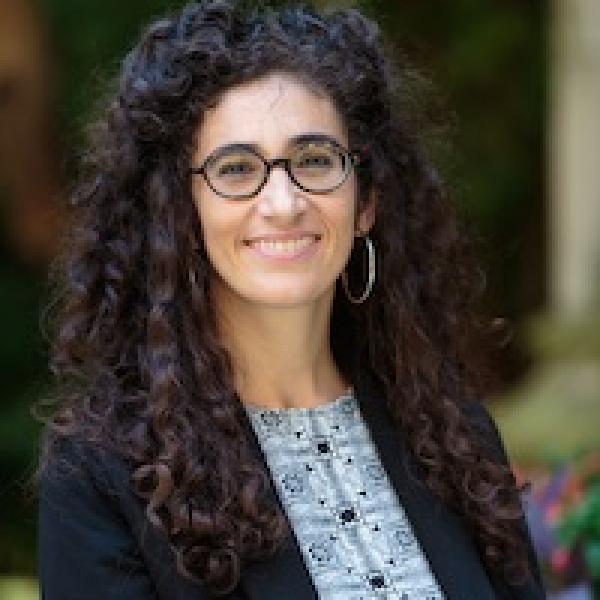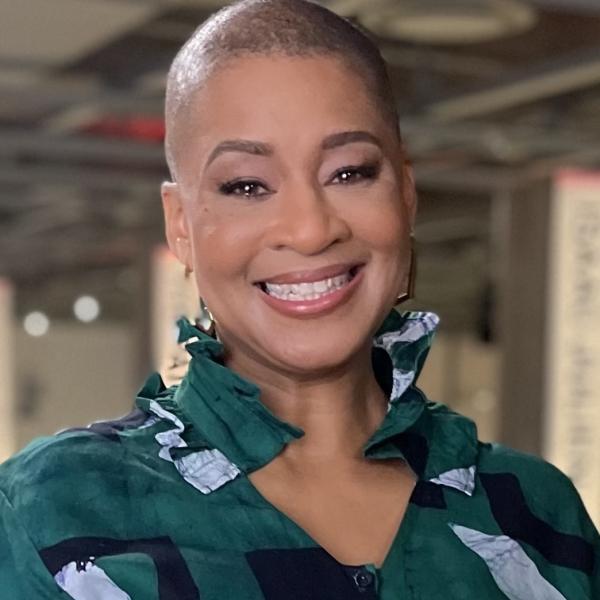
The Department of Cinema and Media Studies (CMS) takes an expansive and multifaceted approach to its study of cinema. The Department’s scholarship encompasses works on film as well as new forms such as television, video, and digital media, analyzing them in historical, theoretical, and cultural terms while also giving careful attention to aesthetic style and practice. Although students may take all of their coursework in CMS, many expand their study into overlapping subjects like Art History, Comparative Literature, East Asian Languages and Civilizations, English Language and Literature, Gender and Sexuality, Romance Languages and Literature, Slavic Languages and Literatures, Theater and Performance Studies, and Visual Arts.
Selected Faculty
Sample Courses
Alternate Reality Games: Theory and Production (CMST 35954) Autumn 2024
Games are one of the most prominent and influential media of our time. This experimental course explores the emerging genre of "alternate reality" or "transmedia" gaming. Throughout the quarter, we will approach new media theory through the history, aesthetics, and design of transmedia games. These games build on the narrative strategies of novels, the performative role-playing of theater, the branching techniques of electronic literature, the procedural qualities of video games, and the team dynamics of sports. Beyond the subject matter, students will design modules of an Alternate Reality Game in small groups. Students need not have a background in media or technology, but a wide-ranging imagination, interest in new media culture, or arts practice will make for a more exciting quarter. (Patrick Jagoda)
Introduction to 16mm Film Production (CMST 38921) Winter 2025
The goal of this intensive laboratory course is to give its students a working knowledge of film production using the 16mm gauge. The course will emphasize how students can use 16mm technology towards successful cinematography and image design (for use in both analog and digital postproduction scenarios) and how to develop their ideas towards constructing meaning through moving pictures. Through a series of group exercises, students will put their hands on equipment and solve technical and aesthetic problems, learning to operate and care for the 16mm Bolex film camera; prime lenses; Sekonic light meter; Sachtler tripod; and Arri light kit and accessories. For a final project, students will plan and produce footage for an individual or small group short film. The first half the course will be highly structured, with demonstrations, in-class shoots, and lectures. As the semester continues, class time will open up to more of a workshop format to address the specific concerns and issues that arise in the production of the final projects. This course is made possible by the Charles Roven Fund for Cinema and Media Studies. (Thomas Comerford)
Seeing Islam and the Politics of Visual Culture (CMST 32500) Autumn 2024
From terrorists to "good Muslims," standards in the racial, cultural, and religious representations surrounding Islam have fluctuated across U.S. media. How do we conceptualize the nature of visual perception and reception? The history of colonialism, secular modernity, gender, patriarchy, and the blurred distinctions between religion and racialization have all contributed to a milieu of visual cultures that stage visions of and arguments about Islam. Hostility towards Muslims has not abated as we venture well into the 21st century, and many remain quick to blame an amorphous media for fomenting animosity towards the “real” Islam. We use these terms of engagement as the start of our inquiry: what is the promise of a meaningful image? What processes of secular translation are at work in its creation and consumption? Is there room for resistance, legibility, and representation in U.S. popular culture, and what does representation buy you in this age? We will pair theoretical methods for thinking about imagery, optics, perception, and perspective alongside case studies from film, stage, comedy, streaming content, and television shows, among others. Students will critically engage and analyze these theories in the contexts from which these works emerge and meld into a mobile and diasporic U.S. context. Together, we will reflect on the moral, political, and categorical commitments vested in different forms of media against historical trends of the 20th and 21st century. (Samah Choudhury)
Methods and Issues in Cinema Studies (CMST 40000) Autumn 2024
This course offers an introduction to ways of reading, writing on, and teaching film. The focus of discussion will range from methods of close analysis and basic concepts of film form, technique and style; through industrial/critical categories of genre and authorship (studios, stars, directors); through aspects of the cinema as a social institution, psycho-sexual apparatus and cultural practice; to the relationship between filmic texts and the historical horizon of production and reception. Films discussed will include works by Griffith, Lang, Hitchcock, Deren, Godard. (Salomé Aguilera Skvirsky)
A complete listing of offerings is available at the Department’s course page.
Cinema and Media Studies Specialization
The Cinema and Media Studies Specialization allows students to structure their coursework and thesis around the study of Cinema and Media Studies within MAPH. Students who complete the following requirements will receive a Cinema and Media Studies transcript notation:
- MAPH Core course (Foundations of Interpretive Theory).
- Methods and Issues in Cinema Studies or Media Studies.
- History of International Film I and II.
- One or two graduate-level elective courses in the Cinema and Media Studies department.
- A thesis on cinema/media under the supervision of a member of the Cinema and Media Studies faculty.
Please direct any questions you may have about specializing in Cinema and Media Studies to maph-support@uchicago.edu.
Recent Cinema and Media Studies Thesis Projects
“Psychedelia in Convolution: Reading Yuya Uchida’s Challenge! (1969) Across Sound and Symbol”
Langyi Ren, MAPH ‘25
Advisor: James Lastra
“You are Filled with (Self)Determination: Undertale, Identification, and the Meta-Avatar”
Rachel Anderson, MAPH ‘25
Advisor: Patrick Jagoda
"Transgender Embodiment Through Genre in Singapore Sling"
Tony George, MAPH '24
Advisor: Allyson Nadia Field
"Towards Aporistic Games"
Vsevolod Khusid, MAPH '24
Advisor: Ashlyn Sparrow
"the film is disintegrating": Self-Distributional Practices and the Specter of Loss Through Materiality/Immateriality in i will never remember this sun"
Liam Kilby, MAPH '24
Advisor: Allyson Nadia Field



